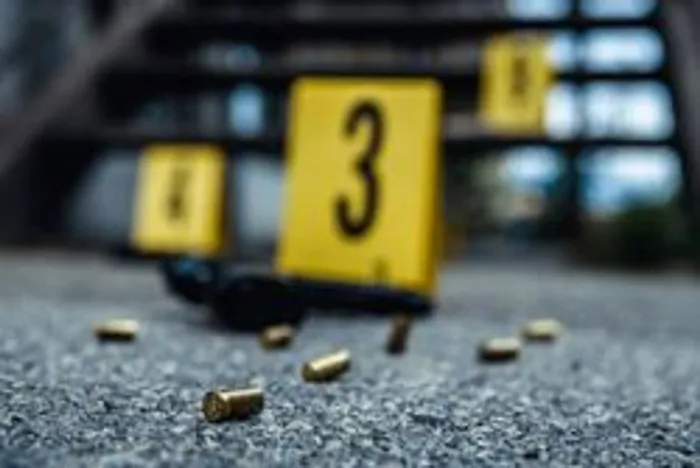
Gun Free South Africa states that a 1999 analysis found that more than 80% of police suicides were committed with service weapons. The organisation blames the ready access to these weapons, even when off-duty, for contributing to this issue.
Image: File picture
Reports of police officers killing family members or others before taking their own lives are common in this country. Over 300 police officers have lost their lives over the past seven years.
As the Police and Prisons Civil Rights Union (POPCRU) in Gauteng puts it: "We give our members these tools to protect themselves against criminals, so it is very disheartening to see the very same tools being used to kill their loved ones."
The latest tragic incident involves a police captain who allegedly shot and killed his girlfriend, a fellow officer, and her brother, wounded three others, and then turned the gun on himself at a private gathering in Protea Glen, Soweto, over the weekend.
POPCRU is particularly concerned about what it describes as insufficient attention being paid to the psychological well-being of its members,
The South African Police Service (SAPS) has acknowledged the problem of police suicides and domestic violence, and has reportedly implemented some measures such as wellness programmes and efforts to address firearm control. This is applaudable, but the problem is still ongoing.
Gun Free South Africa states that a 1999 analysis found that more than 80% of police suicides were committed with service weapons. The organisation blames the ready access to these weapons, even when off-duty, for contributing to this issue.
According to a US study titled 'Preventing Suicide Among Law Enforcement Officers,' published in the National Officers Safety Initiatives, although officers are frequently trained on how to ensure the physical safety of their colleagues, they may not receive equivalent training on how to identify or effectively respond to emotional trauma, mental illness, or suicidal behaviour among colleagues.
Our men and women in the blue uniform have mental health problems and need help before the next crisis strikes.